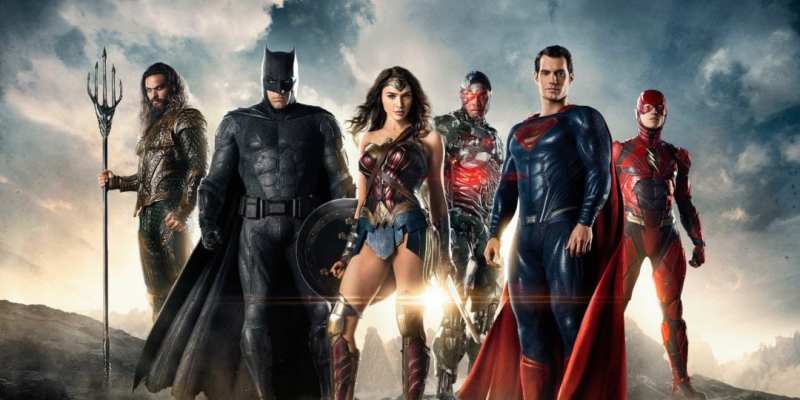The DC Extended Universe is an imitative, unoriginal endeavor that has failed not because it’s boring but because it hasn’t been able to figure out how to do that boring right. The DCEU has slavishly followed the Marvel Cinematic Universe blueprint of crossover characters and stories serialized through multiple blockbusters — and the result has been a series of unwatchable messes. As the first stage of the DCEU grinds to an ignominious halt, maybe it’s time for DC to abandon a formula that hasn’t worked.
Most critics have slammed the DCEU and its guru/showrunner Zack Snyder not for his attempt to create a shared universe, but for making that shared universe so grim and dreary. My colleague Samantha Nelson, for example, contrasts the MCU’s aspirational, open-hearted Captain America with the DCEU’s angst-ridden Superman, who is forced to kill his superpowered antagonist at the end of Man of Steel. Critical complaints about Snyder’s humorless approach in Batman v Superman: Dawn of Justice led to rewrites that added more jokes and banter to Suicide Squad and Justice League.
Despite the additional funny bits, though, both films were widely regarded as unwatchable train wrecks — and rightly so. But there have been a lot of serious, dark superhero movies that have worked. That includes DC’s biggest success, the Christopher Nolan Dark Knight trilogy, which casually killed off leading characters and had a color palette at least as muted as Snyder’s.
The problem for the DCEU isn’t that it’s too grim. It’s that it’s tied itself in knots trying to create a multi-film shared world. The results haven’t been as laughable as Universal’s monster world crossover faceplant following the awful 2017 The Mummy. But they’ve been pretty bad.

The MCU came together fairly slowly over time. Early films were standalone efforts that didn’t lean too heavily on the shared universe. The result was that clunkers like The Incredible Hulk didn’t do much harm to the more successful efforts like Iron Man or Captain America: The First Avenger.
Marvel had a total of five films under its belt before leaning all the way into the shared universe concept with The Avengers. In contrast, DC went right to Batman v Superman after Man of Steel. The headlong race to create a sprawling franchise is a big part of why Batman v. Superman feels like such a bloated monstrosity. Rather than introducing Ben Affleck’s Batman or Gal Gadot’s Wonder Woman in their own films, the characters’ backstories are shoehorned into a movie that is mostly about other things. The filmmakers were focused on putting all the DCEU’s pieces in place, but they forgot to tell a decent story.
This is a problem that afflicts Marvel too. Age of Ultron struggles to set up various plot points for sequels, sending Thor off to take a bizarrely unmotivated bath at one point. Infinity War is so overstuffed with characters from previous films that it feels less like a movie than like a long series of cameos. In general, Marvel’s weakest films are the ones that try to include the most characters. But at this point the MCU has developed enough to be able to work in smaller crossovers without making them feel forced or distracting — as with Iron Man showing up as a mentor in Spider Man: Homecoming or the Hulk popping in to battle Thor in Thor: Ragnarok.
Getting to that point required patience and a willingness to see individual films as individual films first, rather than as inconvenient hurdles on the way to some master plan. It’s no accident that the best, most successful DCEU film was 2017’s Wonder Woman, which was set in the past and therefore had very little linking it to the rest of the DC universe. There was still an irritating and unnecessary Batman cameo, though.

Of course the lure of the MCU is obvious. Marvel’s serialized approach to film has turned every movie into a machine belching forth piles of doubloon. But standalone superhero projects have been doing fine financially and critically. 20th Century Fox’s Deadpool films have a few X-Men cameos, but they’re basically self-contained films and use a gross-out comedy approach that’s radically different from the company’s other superhero offerings. Disney seems to have decided to continue that model following their merger. Similarly, the horror/comedy Venom didn’t reference the rest of the Marvel Universe, instead choosing to ooze down its own campy bad-enough-to-be-enjoyable path. Nor did the animated, all-ages Spider-Man: Into the Spider-Verse. Both used their relative independence to follow a somewhat different tone and approach than the MCU baseline.
DC seems to already be moving to a more circumscribed approach. Ben Affleck is hanging up his Bat-cape, there are rumors Henry Cavill may stop playing Superman, and Snyder’s epic plans have mostly been shelved. Aquaman still felt a bit overstuffed, but it could have been much worse if it had insisted on throwing Batman or Wonder Woman into the narrative for no good reason. Shazam!, scheduled for April, looks like a witty standalone film, unburdened by epic pretensions, multi-film expectations, or a washed-out color palette. The next Batman film is rumored to be set close to the beginning of his career, which means they won’t be trying to fit in the whole Justice League.
Of course there will probably be further DC crossovers at some point. Aquaman and Wonder Woman have already worked together and if Shazam! is successful, DC may well want to get the character into other films. If DC wanted to do a Lois and Clark movie starring Amy Adams and Henry Cavill with a Wonder Woman cameo or two, I would gladly give them my money. But in general, it seems like we’d be better off if DC gave up on the rush to extend the universe for a bit, and instead focused on making one movie that doesn’t suck before going on to the next.
